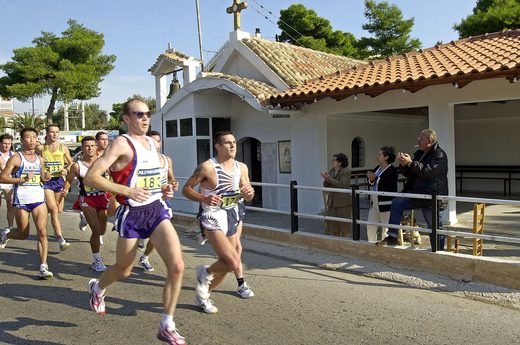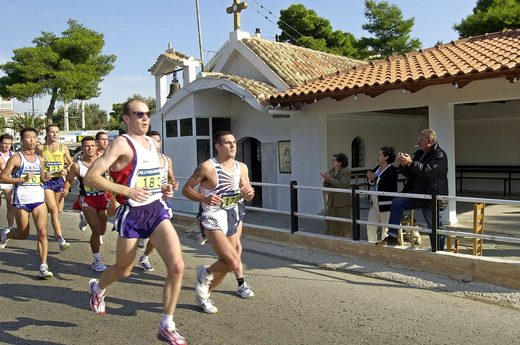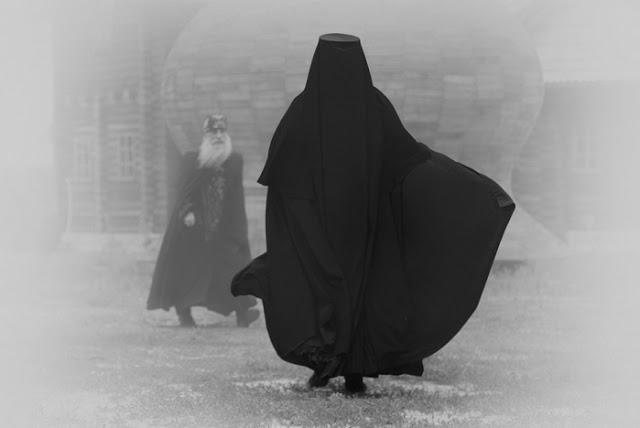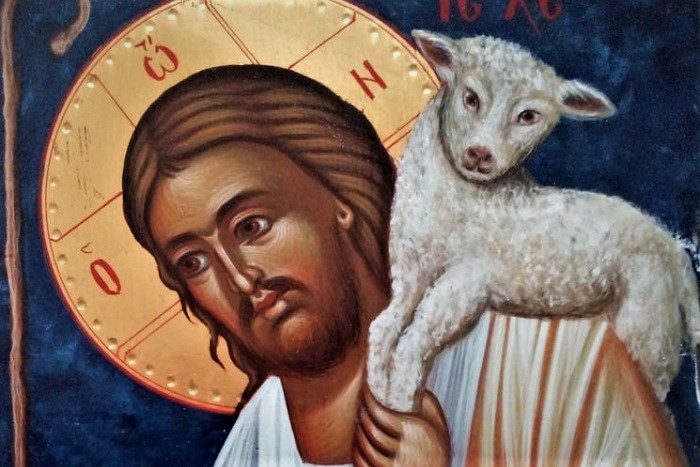 The classic image of the Christian as an athlete of Christ is a little overplayed nowadays, in a culture obsessed with sports. I personally like very much this metaphor, but if we push it too much, we may end up with a very simplistic view, as the priests become coaches, the church an arena, the church community a team and so on. We can get lost in sports metaphors and loose the genuine significance of our Christian life.
The classic image of the Christian as an athlete of Christ is a little overplayed nowadays, in a culture obsessed with sports. I personally like very much this metaphor, but if we push it too much, we may end up with a very simplistic view, as the priests become coaches, the church an arena, the church community a team and so on. We can get lost in sports metaphors and loose the genuine significance of our Christian life.What we do in Christ is beyond a sport, beyond a mere entertaining game. It’s about real life. For me, a true athlete is someone closer to the soldier that ran the first marathon, who did not complete an eight-week program of gradual endurance build-up, nor run it to overcome a midlife crisis. But he ran with a purpose, as he was asked to, and gave up all he had to give to fulfill the mission for his country.
I am not saying that there are no similarities between sports and our life in Christ. There are many, and I have used such metaphors in sermons and catechism before. We need, however, to make a distinction between the two. Let me be blunt: our life in Christ is not a sport. The Greeks have a great word to describe our life in Christ: askesis. Askesis could be translated as exercise, but not for fun, not to stay fit, not to pass time, but as a purposeful exercise that builds us out of this world and prepares us for the Kingdom. Askesis is also not only for the monastics, for the hermit living in the lost caves of the earth, but askesis is for everyone that is serious about being saved.
The Work of the Faith
To me however, probably the most appropriate translation of askesis, would be “struggle”. The first marathoner, in his supra-human effort of self-denial, gave up his life to fulfill his mission. In the same way, askesis is an exercise of renunciation to the world for a greater purpose: we give up a Sunday morning sleep-in for a Divine Liturgy, a burger for a day of fasting, a party on a Saturday night for a Vesper service, our favorite song in the car for a few minutes of the Jesus prayer. And we can go on. Struggle means to give up the “fluff” and concentrate on the things that matter. Anyone can do that. You don’t need monastic vows to show up in time for services or resist a meat craving.
But the struggle does not stop here. The above are the “easy” things. The struggle also involves fighting against our inner sinful urges as each one of us deals with internal turmoil. Some struggle with alcohol, other with drugs, others with sexual temptations, others with envy, or pride, or gossip or depression. On a smaller or a larger scale, we all have to face these tendencies. Their nature is different in each one of us, but the struggle is common to all.
The current trends in the culture tell us to let go of the struggle, that we are defined by our inner predispositions, and we should accept them as part of who we are. Christianity, and particularly Orthodoxy, says the opposite. We are not defined by our sinful desires, but we are defined by the purpose of our creation, which is union with Christ. Our true nature is fully revealed in Christ, the new Adam, and our struggle is to grow more into what He is. This is not an easy task and probably you know it already.
The sinful desires are to be rejected, are to be chased away from our lives and replaced with what is beneficial for our ultimate purpose. Therefore, the life of the Christian is against the world, not to condemn it, but to transform it into a better place, starting with one’s self. The transformation of man into Christ should transform and lift the fallen world. The fallen world should not pressure down man to its fallen level.
The Treasure of Finishing the Race
Keeping up this fight is hard and many times requires a great deal of sacrifice. Not all choices made for Christ are easy, but neither is the easy way out a good choice. Along the path of struggle we fall many times, but in Christ we rise and we continue to run, walk or even crawl. We bite our lips, and we keep moving ahead, never stopping. It is not our sinful tendencies that define us, but our ability to transform them in opportunities of growth and our perseverance to rise after every fall.
Struggle may also mean learning to accept the things in our lives that are not in our control: pain, suffering, loss. These are all part of the fallen world in which we operate. There is no way to avoid them, and the Christian struggle helps us be better prepared when they strike. By living a purposeful life towards the kingdom, we understand that any earthly suffering is temporary in nature. And the healing of the soul will eventually lead to a complete refashioning of man: body and soul. Living in the Communion of the Church, of the living and of the departed together, we learn that any separation is transitory, and the Reunion we wait for will bring great joy to those who have gone through the pains of separation. The Christian self-denial shows that every material loss is a gain, as we learn more and more to give up what is earthly and gather what is heavenly.
What is in our control however is to keep up the struggle no matter what. A life without struggle is a life not worth living, as it would be nothing else but a capitulation to slothfulness, sinfulness and decay. Life is a struggle, and the struggle is life. There is no way around it. We should accept it, embrace it and use it for our final benefit. It will be with us all our lives, only ending with our entrance in the Kingdom. So let’s get to “work-out” our salvation through struggle, not with sadness, but with joy and complete trust in the Lord, Who struggled Himself for our salvation, showing us first the way to conquer the Kingdom! Amen!




